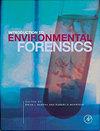Does environmental quality and weather induce COVID-19: Case study of Istanbul, Turkey
IF 1.2
4区 环境科学与生态学
Q4 ENVIRONMENTAL SCIENCES
引用次数: 20
Abstract
Abstract The coronavirus pandemic has infected more than 100 million people worldwide with COVID-19, with millions of deaths across the globe. In this research, we explored the effects of environmental and weather variables with daily COVID-19 cases and COVID-19 fatalities in Istanbul, Turkey. Turkey has the 8th highest number of COVID-19 cases globally, with the highest infections and deaths in Istanbul. This may be the first study to conduct a comprehensive investigation for environmental quality (air quality pollutants, e.g., PM2.5 and PM10, ozone, nitrogen dioxide, sulfur dioxide, carbon monoxide, etc.), weather parameters (temperature, humidity) and COVID-19 in Turkey. The authors collected meteorological data from 11 March 2020 to 8 February 2021 and COVID-19 data from Istanbul and other regions. The results from empirical estimations, correlation analysis, and quantile on quantile techniques support that air quality and temperature significantly influence COVID-19 deaths in Istanbul. This research may help policymakers and health scientists to take specific measures to reduce the spread of coronavirus across different global cities. The effects of air quality on COVID-19 in Istanbul was investigated. The study applied correlation and quantile on quantile techniques over daily data. Temperature significantly induces the spread of COVID-19 in Istanbul at all quantiles. Air quality and Nitrogen are positively linked with COVID-19 new cases.环境质量和天气是否会诱发COVID-19:以土耳其伊斯坦布尔为例
冠状病毒大流行已使全球超过1亿人感染COVID-19,全球有数百万人死亡。在这项研究中,我们探讨了环境和天气变量对土耳其伊斯坦布尔每日COVID-19病例和COVID-19死亡人数的影响。土耳其的COVID-19病例数全球排名第八,伊斯坦布尔的感染和死亡人数最多。这可能是土耳其第一个对环境质量(空气质量污染物,如PM2.5和PM10、臭氧、二氧化氮、二氧化硫、一氧化碳等)、天气参数(温度、湿度)和COVID-19进行全面调查的研究。作者收集了2020年3月11日至2021年2月8日的气象数据以及伊斯坦布尔和其他地区的COVID-19数据。经验估计、相关分析和分位数对分位数技术的结果支持空气质量和温度显著影响伊斯坦布尔的COVID-19死亡人数。这项研究可能有助于政策制定者和卫生科学家采取具体措施,减少冠状病毒在全球不同城市的传播。研究伊斯坦布尔空气质量对COVID-19的影响。该研究对日常数据应用了相关和分位数技术。气温显著诱导了2019冠状病毒病在伊斯坦布尔所有分位数的传播。空气质量和氮与COVID-19新病例呈正相关。
本文章由计算机程序翻译,如有差异,请以英文原文为准。
求助全文
约1分钟内获得全文
求助全文
来源期刊

Environmental Forensics
环境科学-环境科学
CiteScore
4.90
自引率
5.60%
发文量
23
审稿时长
3 months
期刊介绍:
Environmental Forensics provides a forum for scientific investigations that address environment contamination, its sources, and the historical reconstruction of its release into the environment. The context for investigations that form the published papers in the journal are often subjects to regulatory or legal proceedings, public scrutiny, and debate. In all contexts, rigorous scientific underpinnings guide the subject investigations.
Specifically, the journal is an international, quarterly, peer-reviewed publication offering scientific studies that explore or are relevant to the source, age, fate, transport, as well as human health and ecological effects of environmental contamination. Journal subject matter encompasses all aspects of contamination mentioned above within the environmental media of air, water, soil, sediments and biota. Data evaluation and analysis approaches are highlighted as well including multivariate statistical methods. Journal focus is on scientific and technical information, data, and critical analysis in the following areas:
-Contaminant Fingerprinting for source identification and/or age-dating, including (but not limited to) chemical, isotopic, chiral, mineralogical/microscopy techniques, DNA and tree-ring fingerprinting
-Specific Evaluative Techniques for source identification and/or age-dating including (but not limited to) historical document and aerial photography review, signature chemicals, atmospheric tracers and markets forensics, background concentration evaluations.
-Statistical Evaluation, Contaminant Modeling and Data Visualization
-Vapor Intrusion including delineating the source and background values of indoor air contamination
-Integrated Case Studies, employing environmental fate techniques
-Legal Considerations, including strategic considerations for environmental fate in litigation and arbitration, and regulatory statutes and actions
 求助内容:
求助内容: 应助结果提醒方式:
应助结果提醒方式:


